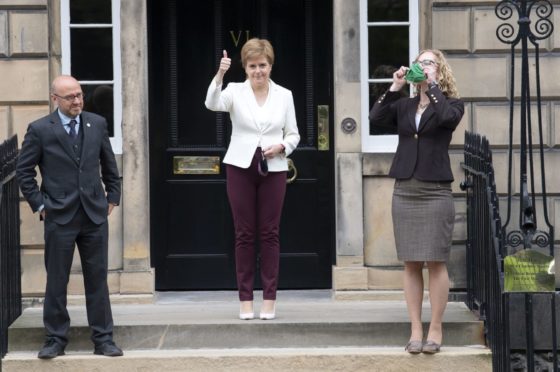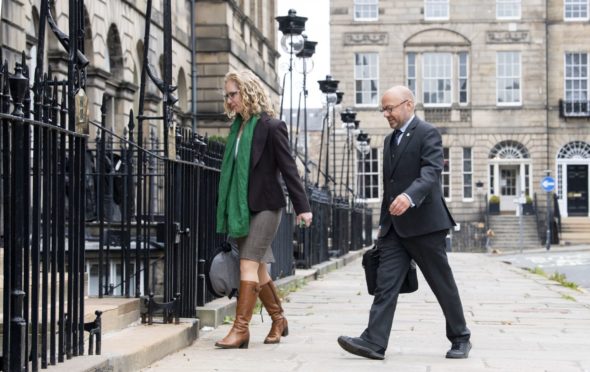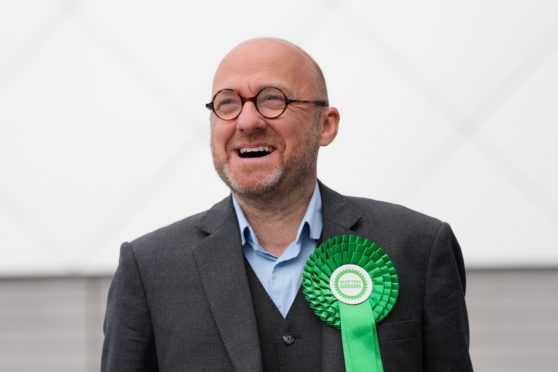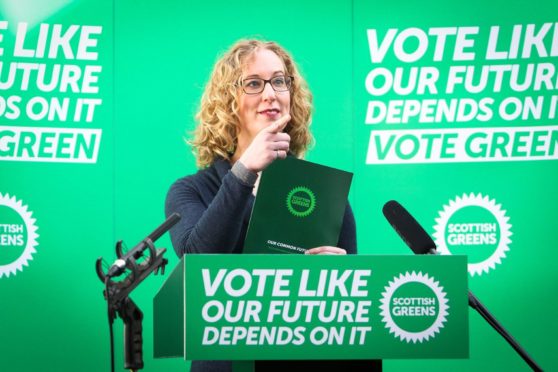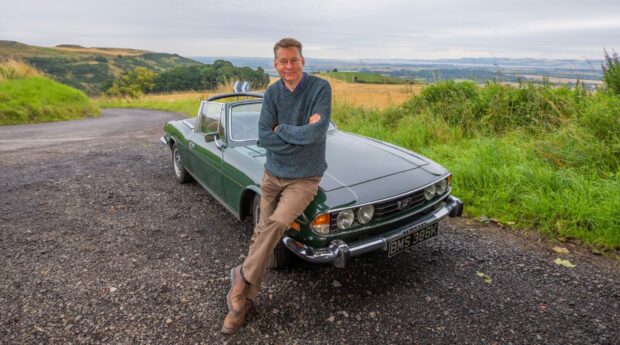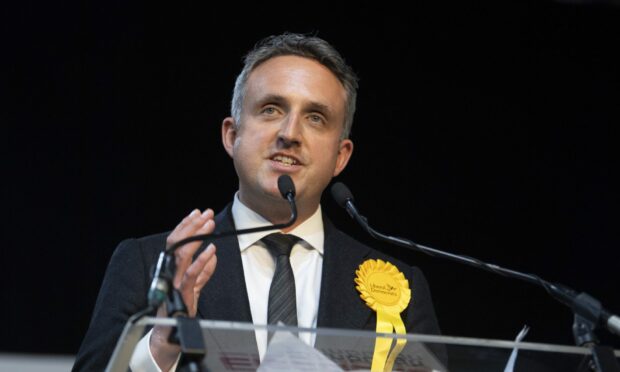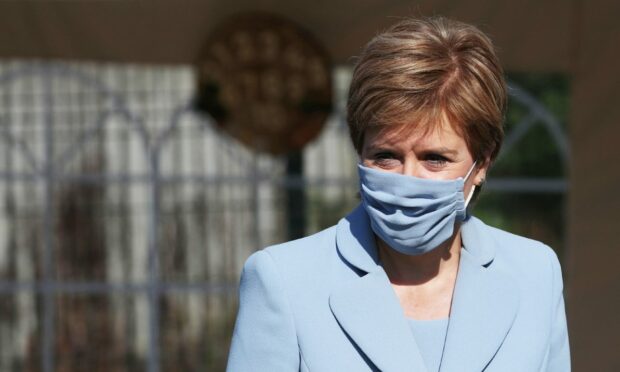Nicola Sturgeon’s “nationalist gamble” to bring the Greens into government will wreak havoc on covid recovery and cripple the North East, opposition MSPs warned.
Scottish Green co-leaders Patrick Harvie and Lorna Slater were confirmed as ministers on Monday afternoon, following months of negotiation after Ms Sturgeon’s SNP fell one seat short of an overall majority in May’s Holyrood election.
First Minister Nicola Sturgeon hailed the “historic agreement” as an opportunity to “build a better country”, one which would be independent from the rest of the UK.
The Scottish Conservatives called the Greens “extremist”, who were “anti-jobs and anti-business” who would shut down the country’s oil and gas industries.
The appointments could have implications for transport projects in the North East, including the conclusion of plans to dual the A9 and A96 trunk roads.
It is the first time the Greens have held ministerial positions in any of the UK’s governments.
Roles
Mr Harvie will serve as Minister for Zero Carbon Buildings, Active Travel and Tenants’ Rights, working under Housing Secretary Shona Robison and Net Zero Secretary Michael Matheson.
As well as overseeing policy on housing, Mr Harvie will have influence on future transport policy, including the decisions guiding infrastructure like roads and rail.
The Greens have been longstanding opponents of the dualling of both the A96 and A9, claiming it would lead to further car use at the detriment of the world’s environment.
Ms Slater has been named Minister for Green Skills, Circular Economy and Biodiversity, working under Finance Secretary Kate Forbes and Mr Matheson also.
“We need to fight the climate emergency with ferocity but without the baggage of nationalism. The planet doesn’t have time for the new nationalist coalition to drag us back to the all-consuming divisive constitutional arguments of the past.”
Alex Cole-Hamilton, Scottish Lib Dems
She will work on the country’s transition to Net Zero, driving policy to help those in industries like Oil and Gas switch to renewables or lower the existing emissions of Scotland’s businesses.
‘Gamble’
Scottish Conservative Shadow Cabinet Secretary for Covid Recovery, Murdo Fraser MSP, said: “In the middle of the biggest economic crisis in our lifetime, it’s deeply worrying that Nicola Sturgeon is turning to anti-jobs, anti-business extremists.
“It is pure economic vandalism to hand power to Green MSPs who have admitted they want to limit growth and hold back Scotland’s economy.
“Nicola Sturgeon is taking a nationalist gamble with people’s jobs. She is bringing in radicals, all in the hopes of ramping up her push for another divisive referendum.
“By offering the extremist Green Party a seat at the table, Nicola Sturgeon has shown her desperate position after failing to secure a majority in the last election.
“Only the Scottish Conservatives will stand up and challenge this divisive coalition of chaos and provide a real alternative to end the obsession with independence.”
Scottish Lib Dem leader Alex Cole-Hamilton added the new coalition was “burdened” by nationalism.
He added: “The coalition is lined with new rules that undermine the Scottish Parliament. The new ‘no surprises’ rule binds every single Green MSP to SNP ministers and would turn their FMQs and debates into a scripted charade.
“Scotland desperately needs new hope but with the Greens now signed up to support the SNP at every turn, Scotland is now stuck with the status quo.
“We need to fight the climate emergency with ferocity but without the baggage of nationalism. The planet doesn’t have time for the new nationalist coalition to drag us back to the all-consuming divisive constitutional arguments of the past.”
Common ground
First Minister Nicola Sturgeon said: “This historic cooperation agreement is founded in a shared drive to work together in the Scottish Government to build a greener, fairer, independent Scotland.
“We have massive challenges to overcome — a global pandemic and its lasting effects, the climate emergency and the assault by the UK government on the powers of our Parliament.
“Patrick and Lorna’s roles in Government are rightly at the heart of facing up to them, and the expertise and passion they bring with them will contribute greatly to defining Scotland’s path forward in doing so.
“Although our parties do not agree on everything we have been able to compromise on both sides, find common ground and agree on areas where we can work together to build a better country.
“The world has had to adapt quickly to respond to the fast-paced and changing nature of the pandemic but what it has shown us is that we can put politics aside to tackle the challenges in front of us decisively and in a way that delivers. I look forward to working with my new Green Party colleagues in this new and ambitious way.”
Ms Slater said: “Any transition to net zero must be just, and my focus will be on delivering policies that support our workforce and wider economy through that change as well as ensuring our greener future is also a prosperous and fair one that benefits our natural environment.”
Mr Harvie added: “We are at a crucial tipping point in terms of our relationship with the planet.
“I am thrilled at the opportunity to drive forward policies that enhance peoples’ lives while supporting the urgent goal of tackling the climate emergency as we emerge from the pandemic.”
Deal
Negotiated over the summer after the SNP fell one seat short of an overall majority in May’s election, the powersharing agreement involves a shared policy platform.
This includes an agreement to pursue another vote on Scottish independence before the end of 2023, if the threat of coronavirus has subsided, as well as a raft of environmental policies and a commitment to implement rent controls.
The deal stipulates that public disagreement between the parties would only be allowed on a set of 10 agreed topics – such as aviation policy, green ports, direct financial support to businesses involved in the aerospace, defence and security sectors, field sports and the economic principles related to concepts of sustainable growth and inclusive growth.
